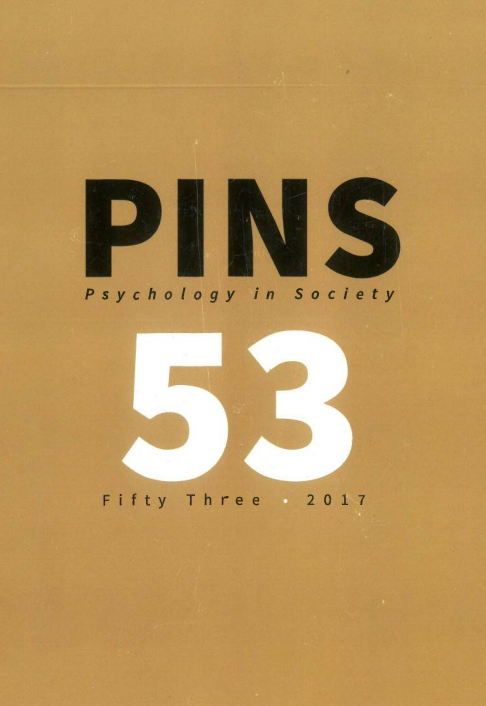HIV advice in the media: Implications for reinventing subjectivity
DOI:
https://doi.org/10.17159//2309-8708/2017/n53a3Keywords:
HIV advice, self-regulation, Foucault, ethics, governmentality, viral load, CD4 count, HIV therapyAbstract
Working within a Foucauldian approach to governmentality and the ethics of self-care, this article analyzes the implications of the values upheld for caring and governing oneself in the HIV advice column of Criselda Sambeso Dudumashe, publicly HIV-positive herself. The analysis reveals that the central thrust of the advice advances the principle of investing in oneself and taking responsibility for one’s physical and psychological health. Careful self-evaluation for self-improvement, however, means expending time and energy monitoring viral load, CD4 count and physical health. Likewise, monitoring one’s adherence to HIV therapy requires careful evaluation of one’s psychological state, including personal anxieties and fears, as well as the willingness to pursue qualified assistance from experts. Such self-government, it is argued, conjures up a subjective formation whose own discretion on how to gain control of HIV is oriented toward engaging with the best scientific practices and expert advice for its consolidation. In view of the emerging role played by similar platforms on and off line, an exploration of how the self is set in relation to itself, and how self-improvement is governed, offers insight into the contours of subjectivity in the post-AIDS era of treatment possibility.
Downloads
Downloads
Published
How to Cite
Issue
Section
License
This journal is an open access journal, and the authors' and journal should be properly acknowledged, when works are cited.
Authors may use the publishers version for teaching purposes, in books, theses, dissertations, conferences and conference papers.
A copy of the authors’ publishers version may also be hosted on the following websites:
- Non-commercial personal homepage or blog.
- Institutional webpage.
- Authors Institutional Repository.
The following notice should accompany such a posting on the website: “This is an electronic version of an article published in PINS, Volume XXX, number XXX, pages XXX–XXX”, DOI. Authors should also supply a hyperlink to the original paper or indicate where the original paper (http://www.journals.ac.za/index.php/pins) may be found.
Authors publishers version, affiliated with the Stellenbosch University will be automatically deposited in the University’s’ Institutional Repository SUNScholar.
Articles as a whole, may not be re-published with another journal.
The copyright of the article(s) lies with the author(s).
The copyright of the journal lies with PINS-psychology in Society.
The following license applies:
Attribution CC BY-NC-ND 4.0 - https://creativecommons.org/licenses/by-nc-nd/4.0/

